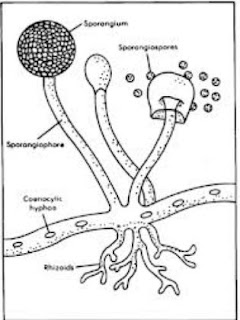Alzheimer's disease Early Life
In
people with AD the increasing impairment of learning and memory
eventually leads to a definitive diagnosis. In a small portion of them,
difficulties with language, executive functions, perception (agnosia),
or execution of movements (apraxia) are more prominent than memory
problems. AD does not affect all memory capacities equally. Older
memories of the person's life (episodic memory), facts learned (semantic
memory), and implicit memory (the memory of the body on how to do
things, such as using a fork to eat) are affected to a lesser degree
than new facts or memories.
 Language problems are mainly characterised by a shrinking vocabulary and
decreased word fluency, which lead to a general impoverishment of oral
and written language. In this stage, the person with Alzheimer's is
usually capable of communicating basic ideas adequately. While
performing fine motor tasks such as writing, drawing or dressing,
certain movement coordination and planning difficulties (apraxia) may be
present but they are commonly unnoticed. As the disease progresses,
people with AD can often continue to perform many tasks independently,
but may need assistance or supervision with the most cognitively
demanding activities.
Language problems are mainly characterised by a shrinking vocabulary and
decreased word fluency, which lead to a general impoverishment of oral
and written language. In this stage, the person with Alzheimer's is
usually capable of communicating basic ideas adequately. While
performing fine motor tasks such as writing, drawing or dressing,
certain movement coordination and planning difficulties (apraxia) may be
present but they are commonly unnoticed. As the disease progresses,
people with AD can often continue to perform many tasks independently,
but may need assistance or supervision with the most cognitively
demanding activities.



































